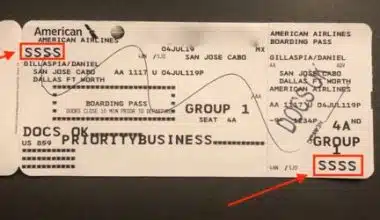When it comes to pursuing an aviation career, many ambitious pilots choose to become flight instructors. Before going down this road, however, it is critical to grasp the financial side of the profession. One key question that often arises is, “How much do flight instructors make?” In this blog post, we will look at the numerous factors that determine flight instructor salaries, explore salary ranges, career advancement options, and the dynamics of their earnings.
The Importance of Flight Instructors
Flight instructors or teachers play an important role in the aviation business, developing the next generation of pilots and guaranteeing aspiring aviators’ safety and ability. Their significance cannot be overemphasized since they are in charge of teaching the knowledge, skills, and experience required for safe flight operations. Let us look at the importance of flight instructors and the essential contributions they offer to the aviation sector.
Flight instructors are educators who guide students through the licensing procedure. They give the necessary training, both in and out of the cockpit, to develop the technical competency and aeronautical decision-making skills required for safe and efficient flight operations. Flight instructors establish in students a thorough understanding of aviation principles, laws, and best practices through their leadership.
One of the most important responsibilities of a flight teacher is to ensure the safety of their students. They instruct students on correct flight procedures, emergency protocols, and effective decision-making strategies for dealing with difficult scenarios that may arise during flight. Flight instructors contribute to the overall safety of the aviation sector by developing a strong safety culture, and assisting in the prevention of accidents and incidents through extensive training and strict adherence to aviation standards.
Flight instructors also act as mentors and role models for future pilots. They share their enthusiasm for aviation, encourage students to achieve their aspirations, and guide them throughout their journey. Instructors provide support, encouragement, and constructive feedback to students as they advance through their flight training, fostering their skills and building their confidence.
Furthermore, flight teachers play an important role in bridging the theoretical and practical divide. They help students grasp the principles behind flight maneuvers, navigation procedures, and aviation systems by translating difficult aviation concepts into practical applications.
Factors Influencing Flight Instructor Salaries
The salary of flight teachers is influenced by several factors. Understanding these factors can provide significant insights into this profession’s earning potential. Let’s take a look at some of the major factors that influence flight teacher salaries:
#1. Expertise and Experience
Flight instructors with more experience and competence in different aircraft types and training programs frequently command higher salaries. As they accrue flight hours and teaching experience, their value and demand in the industry rise. Flight schools and training organizations understand the value of skilled instructors in providing students with high-quality instruction.
#2. Geographical Location
The location of a flight school or training facility can have a considerable impact on instructor pay. Higher-cost-of-living areas or areas with a higher demand for flight training tend to provide higher pay to attract and retain qualified instructors. Flight instructors working in metropolitan areas or places with a high number of flight schools, for example, may earn more than those working in more rural or less populous areas.
#3. Type of Flight School
The type of flight school might also have an impact on instructor pay. Flight instructors at famous aviation academies, universities, or larger flight schools may earn more than those at smaller independent flying schools. The salary packages offered to flight teachers can be influenced by the institution’s reputation and resources.
#4. Ratings and Certifications
Flight instructors with extra certificates and ratings in addition to the basic flight instructor certificate have a higher earning potential. For example, being a Certified Flight Instructor Instrument (CFII) or Multi-Engine Instructor (MEI) permits instructors to provide specialized training and instruction, which can result in increased demand and higher pay.
#5. Flight Hours
A flight teacher’s pay may also be affected by the number of flight hours logged. Instructors with a substantial number of flight hours have more knowledge and competence, making them more desirable to flight schools and training organizations. This enhanced worth can result in better pay.
#6. Supply and Demand
Flight instructor salaries can be influenced by supply and demand dynamics in the aviation business. Because of the competitive nature of attracting and maintaining instructors, salaries are likely to be higher if there is a dearth of qualified flight teachers and a high demand for flight training. On the other hand, if the market is saturated with flight teachers or there is a decrease in demand, salaries may be more moderate.
#7. Track Record and Reputation
Flight instructors with a proven track record of training successful and competent pilots may have an advantage in negotiating greater pay. Flight schools value instructors who consistently deliver high-quality graduates because it improves their reputation and attracts new students.
#8. Other Responsibilities
flight instructors who take on additional obligations outside of regular flying instruction, such as curriculum development, chief instructor roles, or administrative activities, may be paid more. These new tasks reflect the organization’s increased experience and leadership.
It is important to note that the interaction of these factors can differ based on the flight school, location, and market conditions. When considering new job opportunities and negotiating pay, instructors should keep these factors in mind. It can make informed decisions regarding their career routes and earnings potential by understanding the many aspects at play.
How Much Do Flight Instructors Make
Flight instructor salary can vary greatly depending on various factors such as experience, region, type of flight school, and extra certifications. While it’s difficult to provide exact figures, we can provide a general overview of salary ranges within the industry. It is crucial to note that these ranges are only estimates and might vary greatly.
#1. Entry-Level Flight Instructors:
Individuals fresh out of flight school can expect to earn between $25,000 and $35,000 per year as entry-level instructors. These entry-level professions frequently require earning flight experience, teaching proficiency, and developing a name within the business.
#2. Mid-Level Flight Instructors:
Mid-level flight teacher can expect to earn between $35,000 and $55,000 per year as their experience and flight hours grow. Instructors become more adept in their teaching methods at this stage, and they may specialize in specific aircraft or advanced training programs. Their salaries can vary depending on where they work and the type of flight school they work for.
#3. Senior-Level Flight Instructors:
Senior flight instructors with vast experience, advanced certificates, and a significant number of flight hours can earn annual salaries of $55,000 to $80,000 or more. These experienced instructors frequently take up leadership responsibilities, mentor other instructors, and may be involved in curriculum development. The higher end of this salary range is generally seen in locations with higher living costs or at prestigious flight schools.
It’s crucial to note that these salary ranges aren’t set in stone, and instructors may be able to supplement their income by performing flight reviews, giving instrument rating training, or teaching ground school sessions. Obtaining advanced certifications, such as CFII or MEI, can also lead to higher-paying opportunities in the field.
Flight teacher salaries can also vary across countries and regions due to differences in aviation regulations, cost of living, and market conditions. As a result, prospective instructors should conduct research on specific salary ranges in their intended area and consult with industry specialists or flight schools for more precise and up-to-date information.
Additional Income Opportunities
Flight instructors can supplement their regular salary with alternative income sources. Let’s look at some common ways to generate extra money in your profession:
- Flight Reviews and Checkrides: They can conduct flight reviews and checkrides for licensed pilots to ensure their continued proficiency. These services are usually charged separately, allowing instructors to supplement their income.
- Instrument Rating Training: Instrument rating training instructors can provide advanced instruction to pilots looking to improve their instrument flying skills. This specialized training frequently fetches higher fees, allowing instructors to earn more money.
- Ground School Instruction: Ground school instruction allows them to broaden their teaching prospects. Ground school sessions include the theoretical knowledge required for pilot certification and can be held concurrently with flight instruction, providing an extra source of income.
Career Progression and Higher Earning Potential
Flight instruction is frequently thought of as a stepping stone to other aviation jobs. As their experience and flight hours increase, instructors may pursue advanced certifications such as Certified Flight Instructor Instrument (CFII) or Multi-Engine Instructor (MEI). These additional qualifications can lead to higher-paying opportunities, such as corporate pilot positions or airline jobs, with significantly higher earning potential.
Challenges and Rewards of Being a Flight Instructor
While flight instruction can be financially rewarding, it’s important to recognize the challenges and rewards that come with the job. Flight teachers frequently work irregular hours, must adapt to varying student abilities, and must ensure student safety. However, witnessing a student’s progress, watching them earn their pilot’s license, and sharing their enthusiasm for aviation can be extremely rewarding.
Can you make a living as a flight instructor?
Yes, you can make a living as a flight teacher. While flight teacher wages vary depending on experience, location, and type of flying school, many flight teachers make enough to support themselves and their families.
Do flight instructors make a lot of money?
Flight teacher’s salaries can vary depending on their experience, location, type of flight school, and additional certifications. While some flight teachers can make a good livelihood, it’s crucial to remember that their pay may not be as high as that of commercial pilots or other aviation professionals in some situations.
What is the highest-paid flight instructor?
The highest-paid flight teachers are frequently found in specialized aviation sectors that need advanced certification, substantial experience, and knowledge of specific aircraft or training programs. While determining the ultimate highest-paid flight teacher is difficult, there are a few places where flight teachers can potentially make greater salaries:
- Airline Training Programs
- Corporate Aviation
- International Training Contracts
- Specialty Training
It is crucial to remember that these are typical regions where flight teachers may be able to earn more money. The actual pay might vary greatly depending on factors such as the instructor’s experience, location, demand for specialist instruction, and the company or flight school that employs them.
Where do flight instructors make the most money?
Flight instructors have the opportunity to earn greater incomes in particular areas due to factors such as the cost of living, the demand for flight training, and the presence of prominent flight schools or training organizations. While precise rankings may vary, the following are some areas where flight instructors may be able to earn more money:
- United States: With its enormous aviation industry and numerous flight schools, the United States provides opportunities for flight instructors to earn lucrative incomes.
- Middle East: The Middle East has witnessed substantial expansion in aviation and flight training, particularly in nations such as the United Arab Emirates (UAE), Qatar, and Saudi Arabia.
- Europe: European countries with well-established aviation sectors and a variety of flight schools include the United Kingdom, Germany, and France.
- Asia-Pacific: The Asia-Pacific region, which includes China, Japan, and Singapore, has seen a remarkable expansion in aviation in recent years.
- Canada: Canada has a thriving aviation industry and a large number of flight schools that offer training programs.
Can a flight instructor be a pilot?
Yes, flight teachers can be pilots as well. In truth, the majority of flight teachers are experienced pilots who have completed the requisite certifications and flight hours to become flight instructors.
How many months does it take to become a flight instructor?
On average, the Accelerated course takes four months while the Standard path takes six months to complete. This presupposes that you have completed all three of your CFI ratings: Certified Flight Instructor (CFI), CFI Instrument (CFII), and Multi-Engine Instructor (MEI) in both circumstances.
Conclusion
Flight training provides a rare combination of personal pleasure and financial stability. Although the actual salary of a flight teacher varies depending on various factors, the job offers a realistic career option for people who are interested in aviation. From entry-level to senior instructors, the route offers prospects for advancement and the chance to make a decent living. Flight instructors can navigate the aviation sector and build out a satisfying career by considering aspects such as experience, location, and type of flight school.
Finally, the question of “How much do flight instructors make?” is complex. While particular statistics may vary, flight instruction offers a range of earning potential depending on criteria such as experience, location, and career growth. Flight teachers play a critical role in molding the future generation of aviators, and their skill and dedication are rewarded with high salaries. Whether you’re considering a career as a flight teacher or simply curious about the financial aspect of the industry, understanding the dynamics of flight teacher salaries provides significant insights into this exciting sector of aviation.
- HOW MUCH DO FLIGHT NURSES MAKE? 2023 Salaries
- HOW TO BECOME A FLIGHT NURSE: The Ultimate Guide
- FIRST-TIME FLYING TIPS: 15 Best Tips
- BEST PAY-LATER HOTELS IN 2023
- Best Places to Live in Montana 2023: All You Need






